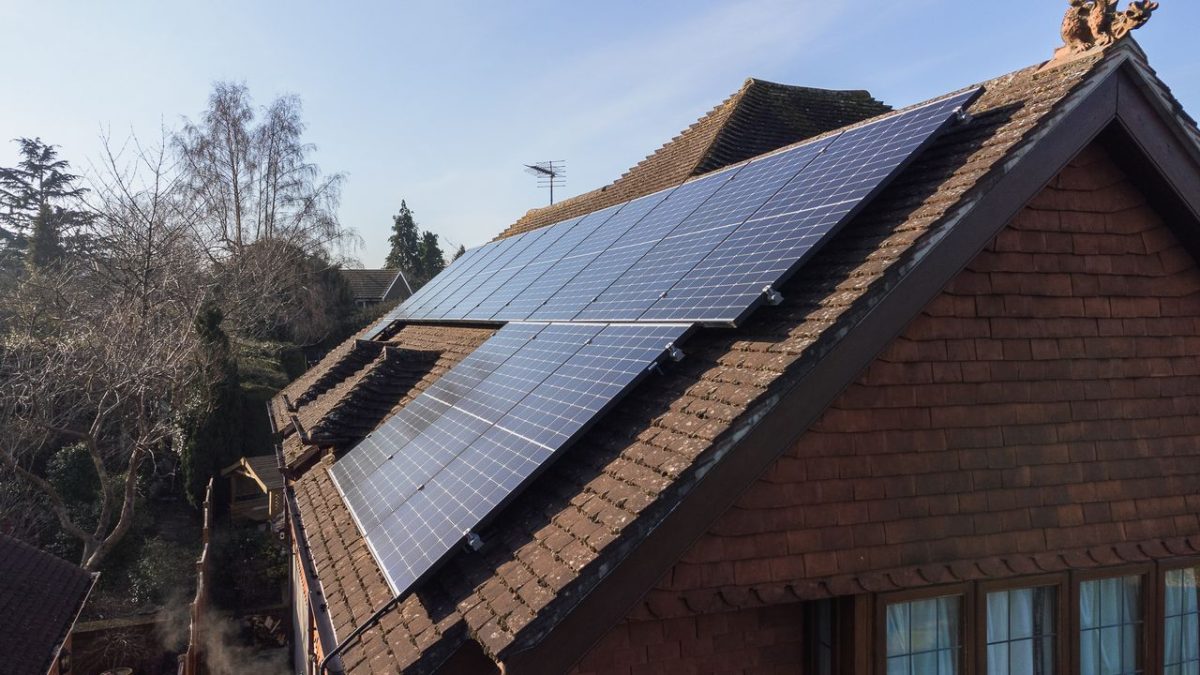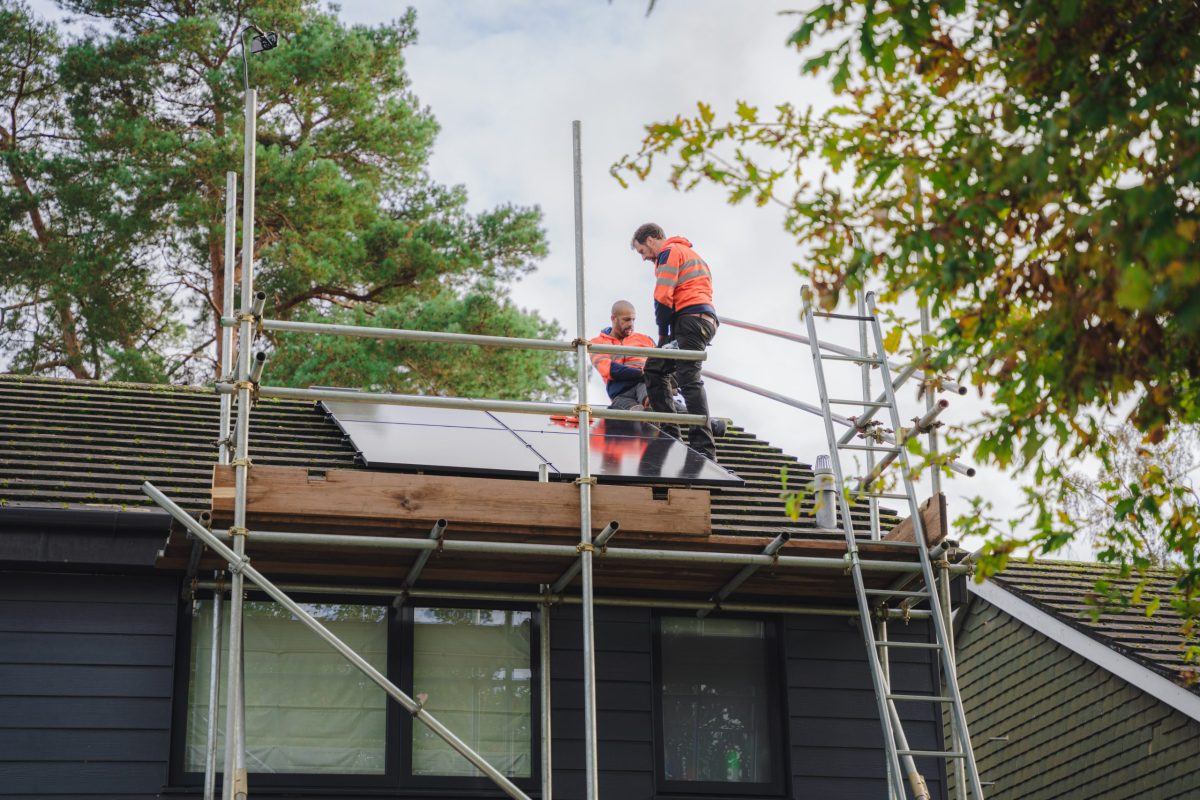A common question we are asked at Jewel Renewables, is if your roof is suitable for solar panels. Fortunately, most properties in the UK have roofs with a pitch between 30-50° which is suitable for solar panels.
There are some key factors in understanding if solar panels are suitable for your home.
Roof Orientation
A south-facing roof is the most ideal roof orientation as it receives the sun when it is at the most powerful. These roofs will generate the most electricity from solar panels. This doesn’t mean the east or west-facing properties won’t suit solar panels, but you may not notice the solar gains as well.
The solar cells of our solar panels are designed and manufactured to deliver a high yield per surface area. Because they have optimal yields, our solar panels generate electricity in low light conditions. Even east and west-orientated homes will notice significant benefits from installing solar panels.
The morning sun will reflect off an east-facing roof, whereas the afternoon and evening sun will reflect off a west-facing roof. North orientated roofs are the worst orientated properties to install solar panels but our high-yielding products can still deliver.
Roof Pitch
It doesn’t matter if you live in a heritage home, retro bungalow or country mansion, both flat roofs and sloping roofs can handle solar panels. We offer a range of roof pitch options to ensure your new solar panels are efficient.
The ideal roof pitch angle is 30-40°, but if it falls outside of this range our solar PV systems can still effectively generate electricity. When it comes to sloping roofs, the slope can reach up to 60 ° and still be effective but 15° is the optimal angle inclination.
Roof Material
Roof material can have a significant impact on your solar panel installation. This system can be installed on almost any type of roof, crafted from any material. There are some roofs which solar panels can’t be installed on.
Solar panels are not suitable for thatch roofs as it becomes a fire risk. Roofs containing asbestos are also a safety hazard so ensure a specialist removes it prior to installing solar panels Glass roofs aren’t strong enough to carry solar PV systems and become a safety risk.

Composite roofs are the best material when installing solar panels because it’s robust and durable. Metal is also an excellent roof material and makes installing these systems easy. Flat roofs are commonly made from tar, which can handle flat solar panels, but we recommend using a bracket which tilts the panels and helps generates more electricity. If you have a wooden roof, there may be fire safety protocols to go through.
Condition Of The Roof
We will evaluate the condition of your roof prior to the installation. A roof should be in an acceptable condition with no damage or holes present. If there are any issues they will need to be addressed before the system is installed.
If you need to replace your roof, you should wait to add solar panels until the job has been completed. Our solar panels will generate power for many years, so it is important your roof is in the best possible condition.
Shading
Solar PV systems can still generate power when shaded, but they will generate less. If your roof is shaded and has shadows frequently cast, solar panels may not be the most suitable solution. Power lines, trees and nearby buildings can cast shadows over a home.
Our optimised solar panels can mitigate the effects of potential shading on your roof. Our skilled installers will assess the layout of your property and how many shadows are cast and determine which installation is best for you.

Size Of The Roof
The size of your roof will impact if it is suitable for solar panels. Consider obstructions like skylights, roof vents, chimneys and turrets when deciding to install solar panels. They generally need at least 4 panels to generate enough power.
If you want to maximise the efficiency of your home, and become grid-independent, you will need to consider how big your roof is and how big the panels are.
Conservation Areas
Solar photovoltaic (PV) panels are generally considered permitted development. This means they don’t need planning permission in most domestic homes but if you live in a listed building or conservation area you may need permission
We recommend asking your local authorities to confirm you don’t need planning permission for your new roof installation. If you do need planning permission, it may take several weeks to be approved, granted and implemented.
If you have any further questions about solar panels, please do not hesitate to get in touch with us today. Call our team on 01252 939 597 or fill out our online contact form, and we will be on hand to help.

Our Tree Planting Mission
Find out more
